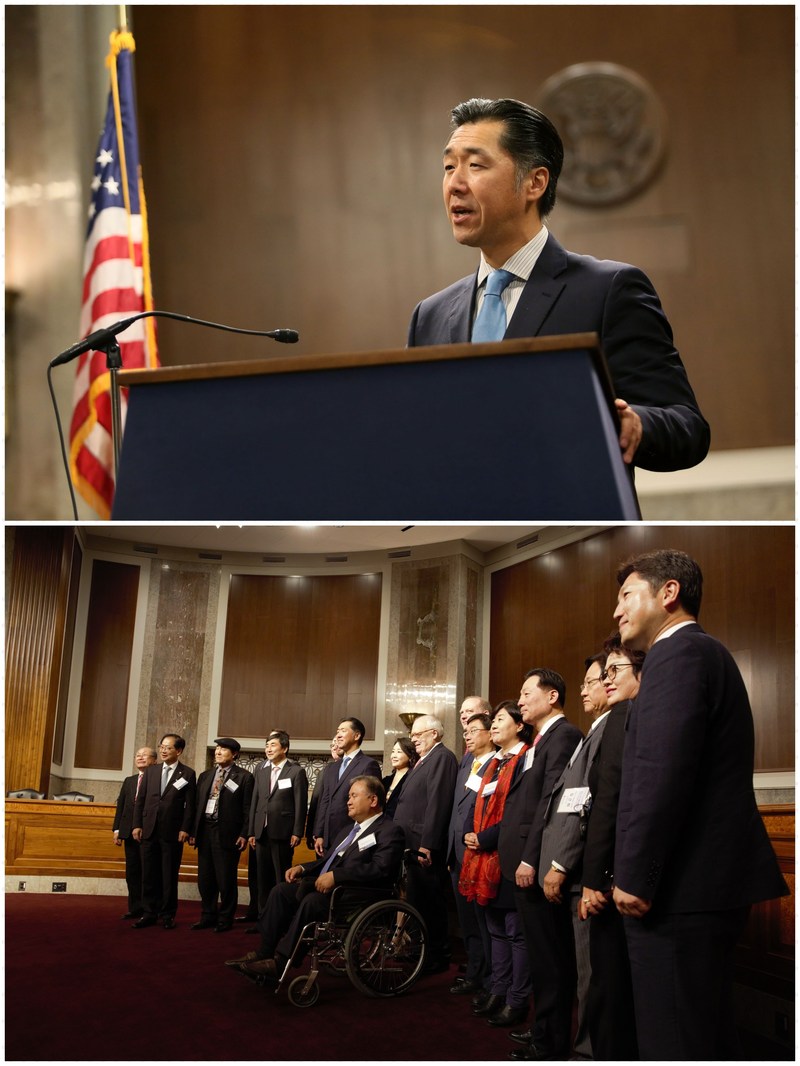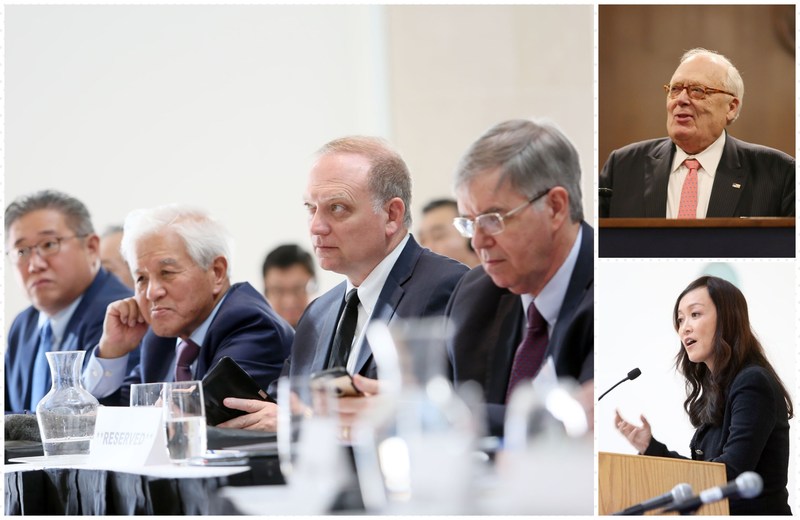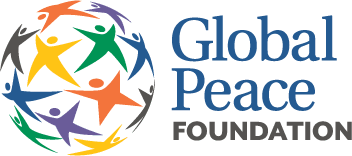Calling the North Korean regime a “moral abomination” constituting a core threat to the region’s stability, Dr. Sue Mi Terry, Senior Fellow for Korea at the Center for Strategic and International Studies, and other Korea experts urged multi-sector efforts in support of Korean unification as the surest means of curbing North Korea’s human rights abuses and denuclearizing the Korean peninsula over two days of talks in Washington on November 14-15, convened by the Global Peace Foundation, Action for Korea United, EastWest Institute, and One Korea Foundation in partnership with the National Unification Advisory Council of the Republic of Korea.

Above: Global Peace Foundation Chairman Dr. Hyun Jin P. Moon said unification remains the dream of all Koreans, but that “contextualizing Korea’s future in its founding ideals removes all the foreign constructs and allows the Korean people to take charge of their own destiny.” Below: A delegation of six members of Korea’s National Assembly join leaders representing Action for Korea United, a coalition of more than 900 civil society organizations supporting unification efforts, at the “International Forum on One Korea 2017: Solutions to the Korean Peninsula Crisis” in Washington, D.C.
Mr. Greg Scarlatoiu, Executive Director of the Committee for Human Rights in North Korea, presented the stark reality of the humanitarian crisis and urged governments to place North Korea at the top of the human rights priority list. Stressing the significance of information technology reaching the north, Mr. Scarlatoiu said that North Koreans themselves must be empowered with the information about their own human rights situation, the corruption of their leaders, and “the story of a free, democratic powerhouse, South Korea.”
Representatives from two leading political parties in the Korean National Assembly, Jong-Kul Lee of the majority Minjoo Party and Sang Jin Shin of the opposition Liberty Korea Party, emphasized the importance of a coordinated international pressure, along with strategies advancing ultimate Korean unification and also called for the redeployment of tactical nuclear weapons in the South as a robust deterrent.
Dr. William Parker, Chief Operating Officer of the EastWest Institute, told the forum that the Korean peninsula is “an opportunity for the Korean people to unite, to share the blessings of a democracy and to eliminate all nuclear weapons to serve as an example for the rest of the world to follow.”
Warning of the dire consequences of loss of control of fissile material should North Korea’s nuclear program continue unchecked, Parker singled out China as particularly vulnerable to consequences of war breaking out on the Korean peninsula, saying the crisis presented China with an opportunity to exercise its options as a great power rather than an insular, closed society.
Heritage Foundation President Dr. Edwin J. Feulner said that U.S. President Donald Trump’s recent address to Korea’s National Assembly affirming U.S. ties of friendship and commitment to freedom and human rights were a fitting antecedent to the forum that sought to uplift those values and extend them to embrace all Koreans.

Left: (from right) Mr. James P. Flynn, International President of the Global Peace Foundation; Dr. William J. Parker III, Chief Operating Officer of the EastWest Institute; Dr. Jai Poong Ryu, President of the One Korea Foundation; representing the co-convening organizations are joined by Rev. Kenneth Bae, the longest-held American in a North Korean prison. Right: Dr. Edwin J. Feulner (above right), Founder and President of the Heritage Foundation and Dr. Sue Mi Terry (below right), Senior Fellow for Korea at the Center for Strategic and International Studies, join scholars from Russia, Japan, China and Korea to explore approaches to the unification of the Korean peninsula.
Global Peace Foundation Chairman Dr. Hyun Jin P. Moon described his own family’s involvement with Korean unification since the Korean independence movement of 1919, noting that the division following the conclusion of World War II was thought to be a temporary “stopgap” measure until national elections could be held. Instead an ideological division hardened into the establishment of two hostile states.
He said the 2019 centenary of the independence movement should become an historic milestone to promote the unrealized ideals of an independent, free, and unified Korea. He added that the centenary should look back to and promote a vision of Korea that predated the current division, and the 2019 Global Peace Convention in Seoul would be focused on that message. Moon said that unification remains the dream of all Koreans, but that “contextualizing Korea’s future in its founding ideals removes all the foreign constructs that have defined the last century.”
Other forum speakers included Rev. Kenneth Bae, President of the Nehemiah Global Initiative and the longest-held American prisoner in North Korea; Dr. Tarja Cronberg, former European Union Parliamentarian and Distinguished Associate Fellow with the Stockholm International Peace Research Institute; Dr. Jai Poong Ryu, President of the One Korea Foundation, and scholars, economists and human rights advocates from Korea, Japan, Russia, China, Mongolia and the United States.
The forums were convened at Dirksen Senate Building and the Ronald Reagan Building and International Trade Center.
For more information, visit: www.1dream1korea.info
Sign up for our monthly newsletter to receive news on the latest GPF initiatives for Korean reunification.
